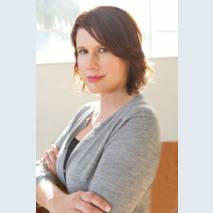
Rachel Chase, MLitt in Publishing Studies student, reports on our latest Visiting Speaker:
Paula Morris, a fiction writer and lecturer at the University of Stirling, talked about the life of a writer—warts and all. And yet, even after detailing the hard aspects of such a career, she said, “I wouldn’t change what I do at all.”
Paula dispelled two central myths in her lecture: 1) an author’s career is one of complete isolation and 2) if you’re good enough, you’ll get published.
An author’s career is one of complete isolation . . . think again.
Although the writing itself may be isolated, Paula pointed out, a huge part of an author’s career is a collaboration—it’s all about relationships. The author must have important relationships with the agent, editor, rights buyer, publicist, readers, other writers, designers, and sales and marketing. Some connections are direct ones while others exist via the agent or editor. But all of these relationships are important.
However, a writer cannot rely on the publishing company to do everything. Increasingly, authors need to market themselves and their products. Paula, who has a background in marketing, finds it more productive to get up and do something to promote her latest titles than gripe about what the publishing company is or isn’t doing. The digital wave has not only rocked the publishing industry as a whole, but it has also put a burden on authors to have a digital presence. Blogs, websites, Facebook pages, and tweets all take time. Paula wisely advised to be careful what you say online. You never know who is reading.
The life of an author is a busy one. It is a life of constantly dealing with people who want something from you: answers to questions, a review for another book, a free book, a biography for an event, a manuscript read, an introduction to your agent, a lecture, and so on. Writers have much more to think about than simply writing books; they have to give interviews, visit writer’s groups, visit schools, appear at festivals, attend meetings with agents and editors, work with accountants, answer e-mails, update websites and blogs, attend photo sessions, fly to various parts of the world, organize book launches, visit booksellers, and much more. There may be many words to describe the life of a writer (busy would certainly be on the list), but “isolated” is not one of them.
If you’re good enough, you’ll get published . . . simply not true.
Books are a commodity and publishing is a business. It is the market that dictates whether a book sells or not, regardless of its intrinsic value. To be a published writer, you need luck, timing, the support of other people, and market forces in your favor. For an author, every new book is riddled with the fear that it could be his or her last book. “It’s an incredibly insecure life,” Paula said.
Yet despite the difficult aspects of making writing a career, Paula announced, “I wouldn’t change what I do at all.” It is a hard road but a rewarding journey for those who want to make writing a career. Thanks Paula for your insights! You can check out Paula’s website here.

 On 28th September 2011, award-winning writer Andrew O’Hagan arrived in Stirling to deliver a lecture on civic memory, which he called
On 28th September 2011, award-winning writer Andrew O’Hagan arrived in Stirling to deliver a lecture on civic memory, which he called 
